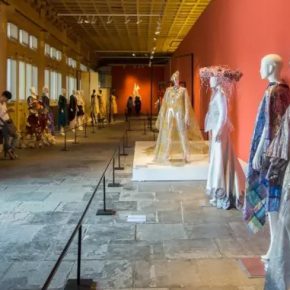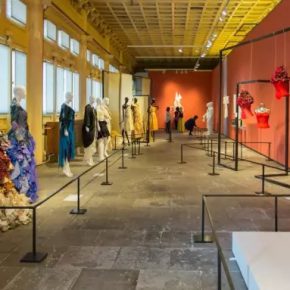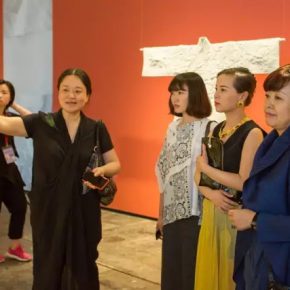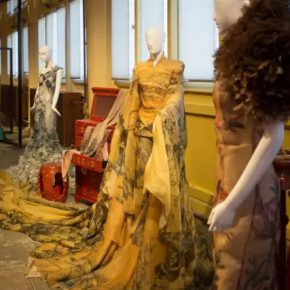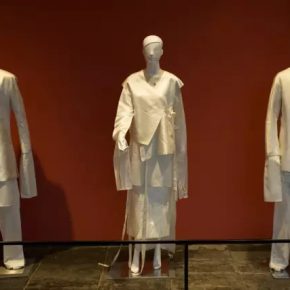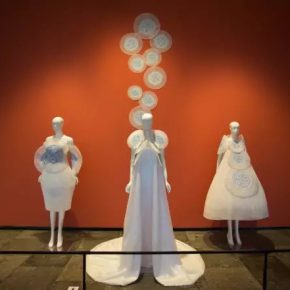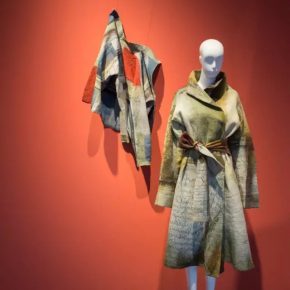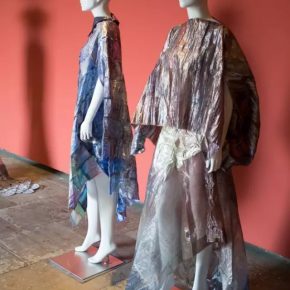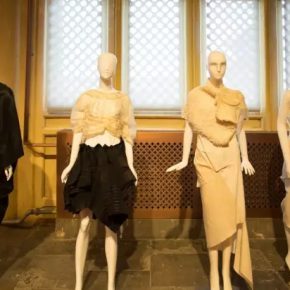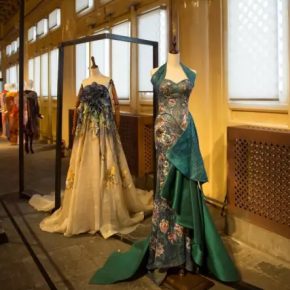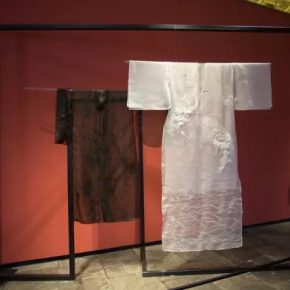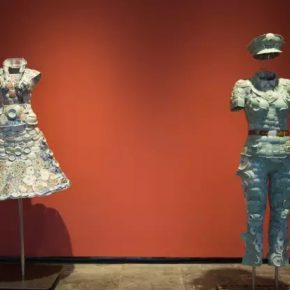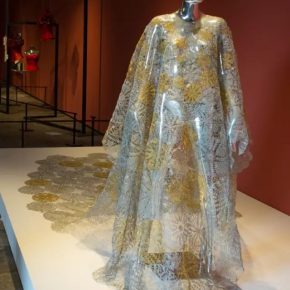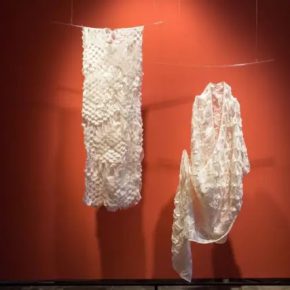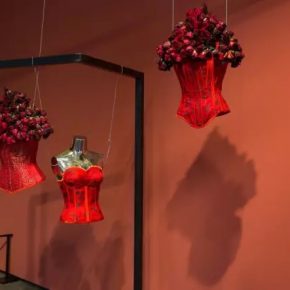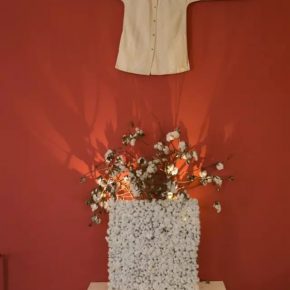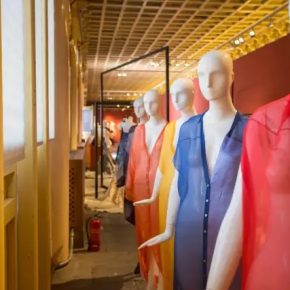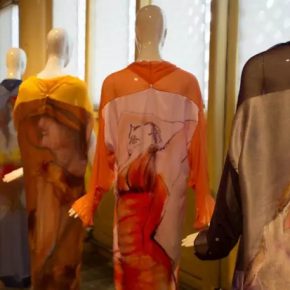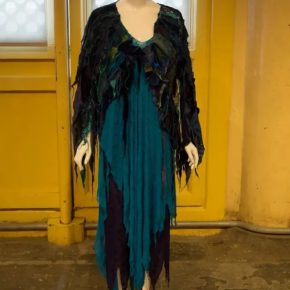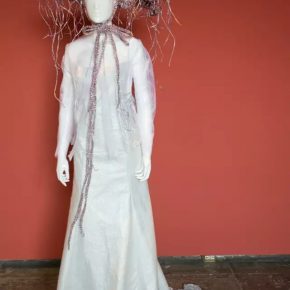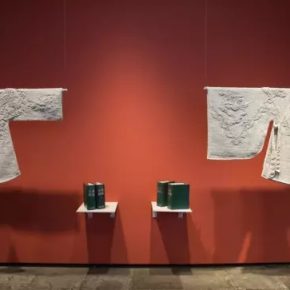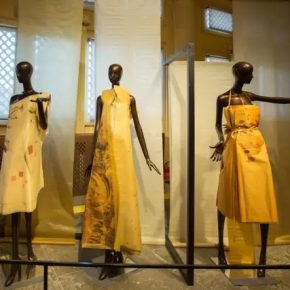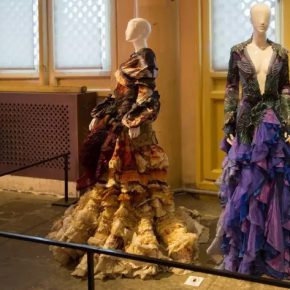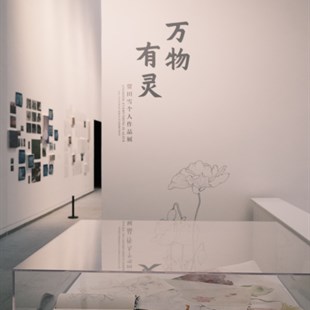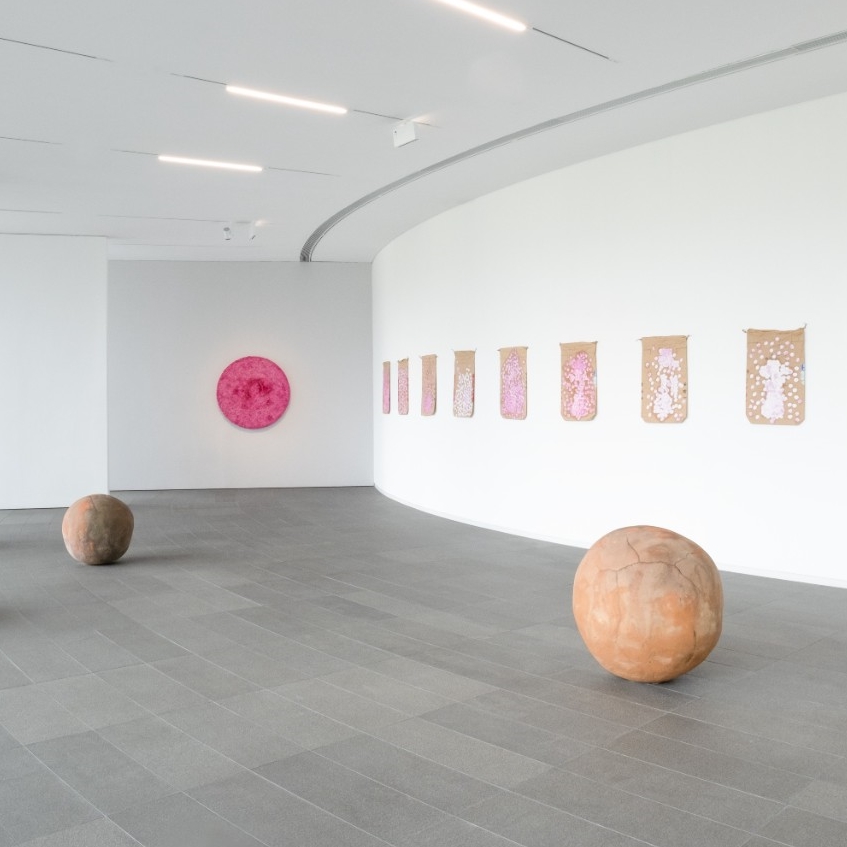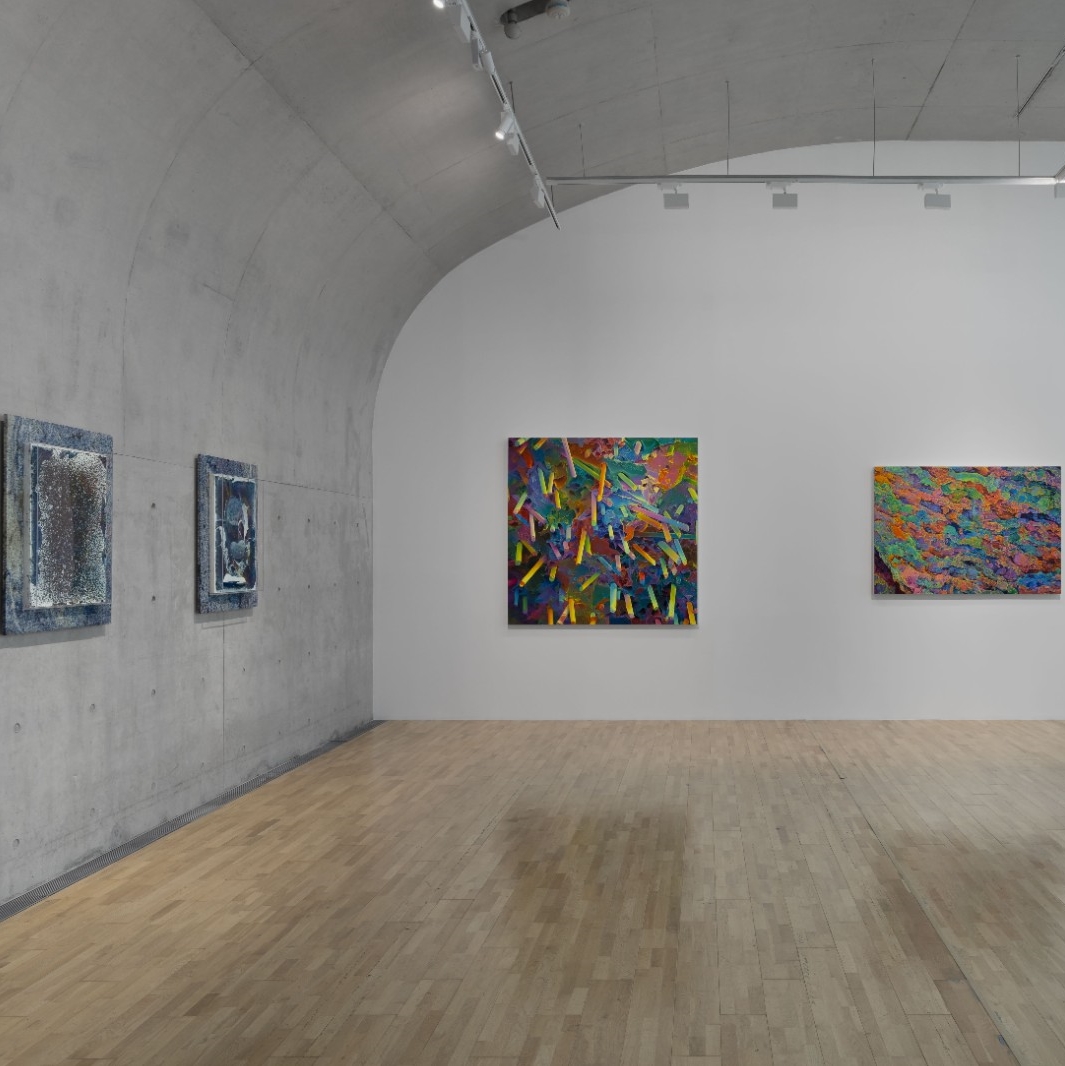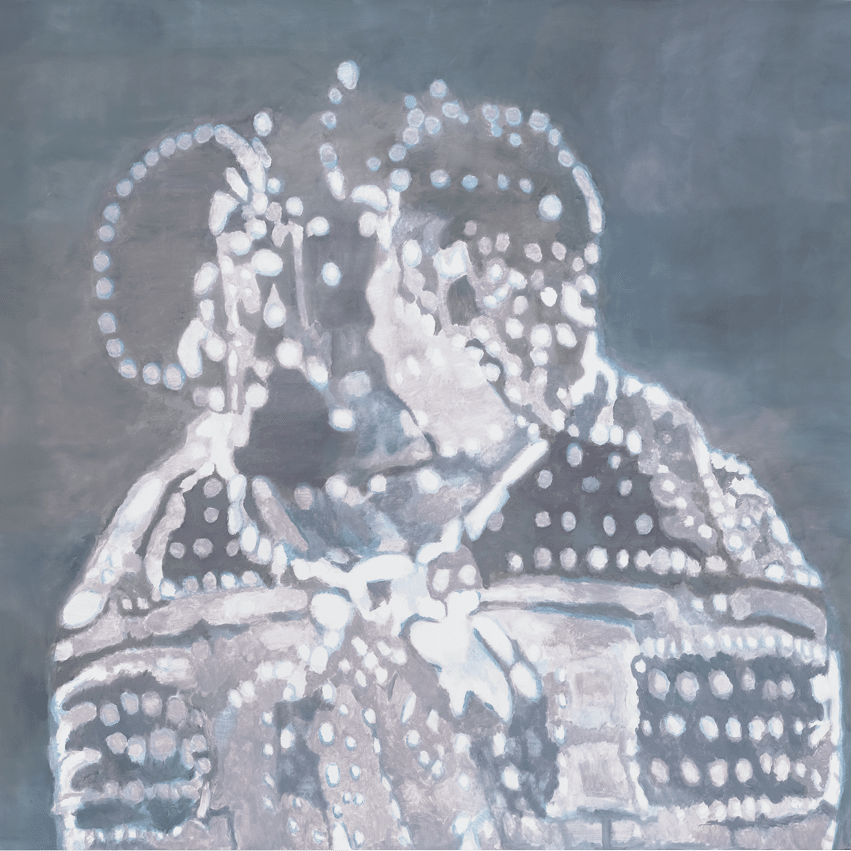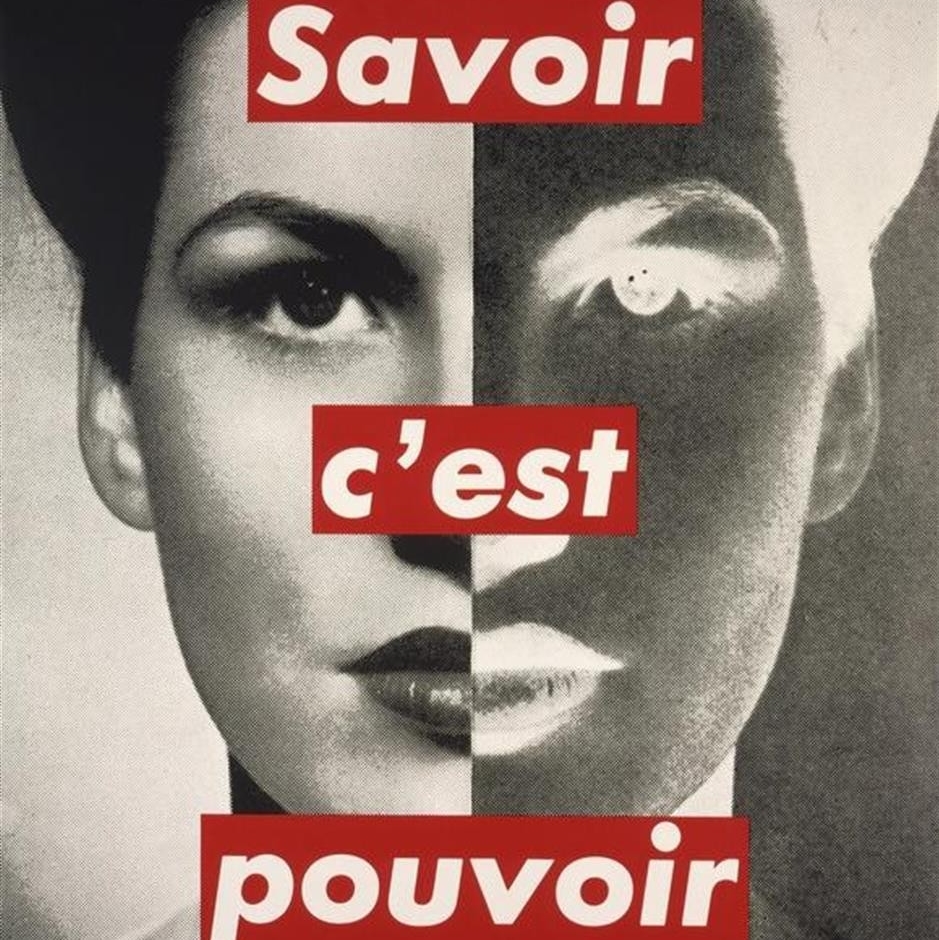
Preface for the Grand Exhibition entitled “The Silk Road and Celestial Clothes”
“Official Costume and glorious decoration could be called Hua, a country of etiquette could be esteemed as Xia”, the “Silk Road” opened up by ancient countries with a reputation as “a great country with a civilization and culture” it is also a road of “brocade and celestial clothes”. It contains a long history of Chinese civilization, and it has become a cultural spreading river across the Eurasian continent. On the occasion when “Belt and Road” Forum for International Cooperation was held in Beijing, the grand exhibition was entitled “The Silk Road and Celestial Clothes”, collecting beautiful things from the ancient and the present while integrating innovations from China and abroad. From silk and cotton fabric to fashion design, from classic items to individualized charming glamour, the exhibition creates a harmonious atmosphere for cultural tolerance, and it plays a “visual symphony” with joint participation from each country.
Traditional clothes have developed quite a long way, and it has an integral relationship with the long-standing cultural gene while it reflects the cultural imprint of the epoch. Nowadays, clothes have become the carrier of every ethnic culture, which conveys the profound implication under various cultural backgrounds. From Shen Clothes ( the upper garment is sewn up with the lower one) in Han Dynasty to contemporary artisans, the Chinese nationality has created the “clothes culture” rich in oriental flavor with its indulgence “incorporating things of diverse nature” and “tolerating coexisting differences in harmony”. Fashion shows presented on the international T-shaped platform have constantly renovated the aesthetic concept of contemporary life, thus the mutual reference of civilization and integration of cultures in the field of fashion and clothes, is an important representation of creations and innovations in contemporary visual art, which motivates the curation of “The Silk Road and Celestial Clothes”. With three sections respectively entitled as Nations Connected in a Belt of the World, Joint Presentation by Artists from China and the West, Grand Gathering of Clothes, the exhibition connects countries along the Silk Road with historical relics and featured clothes, reflecting the cross-boundary creations and thinking from the East to the West, from clothes to statue. It could be considered to take clothes as its thread, tracing the source while seeking the history; or to take clothes as the scenery, integrating insight and vision.
In ancient times, clothes used to be used to describe people in a metaphorical way, a fairy with stockings on her feet walks slowly on water, clothes seems to be connected with the manners of people. It does not only constitute the image features of a nationality, but it is also manifested in a comprehensive connotation of culture. In the delicate and ingenious imaginations of contemporary artists from China and abroad, these various clothes have been endowed with dual implications of reproduction of the classics and innovative transformation. While the ancient media has been injected into new epochal concepts, its visual forms as well as its themes and contents tend to become more diversified, rich resources of traditional culture provide support and make new contributions to the prosperity and development in contemporary art.
Dressed in distinctive and splendid clothes made of silk, while wearing dazzlingly beautiful jasper earrings. Fantastic clothes patterns are present among the red walls and yellow tiles of the Imperial Ancestral Temple covered with red gilt, with no doubt it will add a magnificent atmosphere when the palace gates are opened one by one, envoys from various countries and officials of all ranks and descriptions will pay their respects to the emperor, which might trigger infinite reverie both nostalgia and thought-provoking. With splendid history and grand prospects, celestial clothes gracefully highlight the Silk Road, the classic splendor together with contemporary innovations will connect China with the world in the dances of silk clothes, weaving a road that leads to cultural convergence and symbiosis.
Fan Di’an, President of the Central Academy of Fine Arts
Honorary Director of the Art Gallery of the Imperial Ancestral Temple
May 2017
In mid-May 2017, the “Belt and Road” Forum for International Cooperation was held in Beijing, in the spiritual context of sharing and communication, from May 13 to May 30, “The Silk Road and Celestial Clothes” is presented at the Art Gallery of the Imperial Ancestral Temple. Fan Di’an, President of CAFA is the chief curator of the exhibition, Prof. Lv Yue and Zhang Yanzi respectively planned different sections of the exhibition under the cultural framework of “Silk Road”, starting from the cultural factors of “silk” and “robe”, to then focus on the research on distribution, development and evolution of the technology of silk in the regions of the Silk Road, and the new form of silk robe in the contemporary context of art, in addition to the artistic creation and the material form of the robe that collides and bursts out with wonderful sparkles.
As the introduction and indication of the exhibition, the Second Temple features a show entitled “Nations Connected by a Belt around the World”, partly researching the spiritual connotation and national cultural aesthetic built by clothes when people were located in different stages and regions, it takes the origin, development and dissemination of silk in China as the clue, focusing on the presentation of the collision and communication between the culture of Chinese mulberry and the cocoon and the civilization of culture, which also sets off the realistic pictures of cultural dialogue in the present context of “belt and road”. Clothes, crafts, patterns, designs and colors are intertwined together to build a unique “culture of clothes”, which maps the history of human civilization. Starting from an historical perspective of “culture of clothes” to bring the past, present and future to form a complete and open entirety around the “robe”, which is also a consistent narrative style of the Art Gallery of the Imperial Ancestral Temple.
The major parts of the exhibition entitled “Grand Gathering of Clothes” and “Joint Presentation by Artists from China and the West” are on show at the Eastern and Western Side Temples of the Imperial Ancestral Temple, starting from a simple visual experience, the two parts might have some similarities, which are both presentation of clothes, but carefully experiencing the curatorial concepts of shows and the creative practices of participating artists, one can feel there are two different logics in artistic creation. In the part of “Joint Presentation by Artists from China and the West”, curator Zhang Yanzi invites artists to take a silk robe as the “canvas” or “element”, using personal language and ideas to create and the forms of the artworks cover the art on the shelf and the installation. It is the first time for some of the participating artists to take clothes as the creative medium. Lv Yue plans the “Grand Gathering of Clothes”, to invite the designers and artists who have been involved in clothes over a long period of time to showcase the new features of contemporary fashion art.
“Fashion Art” is the essential concept of “Grand Gathering of Clothes”. It is a cutting-edge art form born in the United States in the 1960s and 1970s, through the “wearable art” movement that suggests a reflection on fashion art that can break the external border of the design of clothes, and focus on thinking of the culture and thoughts behind the clothes, these clothes contain the feelings of creators, which are works from the soul. Fashion art embodies the combination of fashion and art, and the artistic expression that takes the form of clothing as the vehicle. It is also the essential difference of the art displayed in the eastern and western side temples, on the one hand, it is a new expansion of artistic creation, diverted from the traditional, in the form of language and media; on the other hand, it is a new artistic expression model born in a contemporary art context.
Although fashion art has only been developed for 50 years, it showcases its own developmental characteristics, which is the thing that the curator Lv Yue wants to express in the exhibition. In terms of the identity of the creators engaged in fashion art, the proportion of professional teachers is gradually increased in the colleges and universities, and they add thoughts on social value and artistic value in the teaching of fashion design, showcased by their own creations. Independent designers also oppose the stereotypical creative modes of exploration and their own personality in the works. There are also some professional artists joining the creation of clothes who focus on the exploration of the relationship between clothes and people, society and the soul.
Starting from the exhibited works, fashion art is constantly updated in the use of materials, breaking the restrictions of fabric, beginning with the use of metal, ceramics and other materials in the creations. On the one hand, the expansion of materials helps the creator to express the culture and thinking behind the clothes, and it is more important to help the audience and society to understand people can’t judge the value of clothes art by depending on whether it is “wearable” or not, so fashion art has to be guided to be close to the field of art, guiding the focus transferred to the thoughts of the value and viewpoint of society, culture, design and humanities behind the works.
“The Silk Road and Celestial Clothes” is an exhibition starting from the concepts of the silk and robe, and also a link connecting traditional silk crafts and contemporary fashion art, from the dimensions of the ancient and modern, China and foreign, and also prompting the possibilities and new appearance of the trans-boundary fusion between the field of contemporary art and silk & clothes.
Text by Zhang Wenzhi, translated by Sue and Chen Peihua and edited by Sue/CAFA ART INFO
Photo by Hu Sichen/CAFA ART INFO


